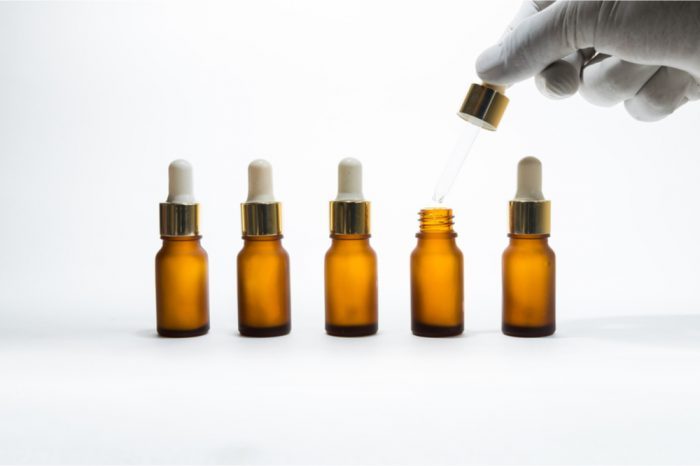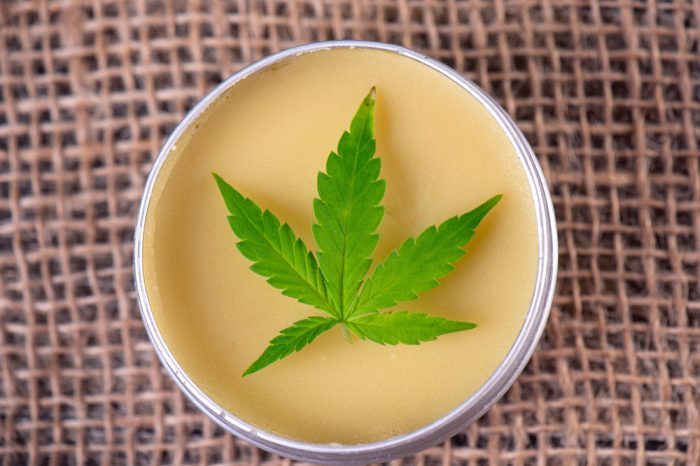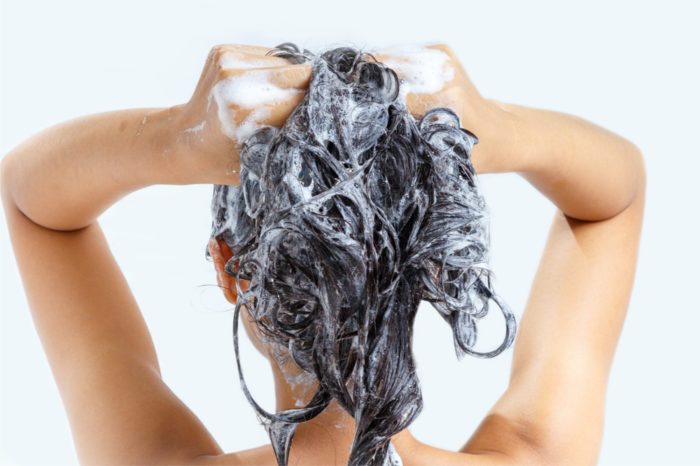Bring CBD into your winter skin care ritual for less dry, chapped, hands.
Along with the changing of the leaves and the lengthening of the nights, what’s another surefire way to tell that cold weather is approaching? The familiar itch of dry skin. Thankfully, research shows that CBD products can help remoisturize and protect skin, making them an essential part of any winter skin care regiment.
Keeping skin feeling fresh and moisturized isn’t just cosmetic. Dry, cracked skin can cause serious issues, such as painful blisters and irritated rashes.
Scientific studies, such as this paper [1]Del Rio, Carmen et al. (2018). The Endocannabinoid System of the Skin. A Potential Approach for the Treatment of Skin Disorders. Biochemical Pharmacology: Vol. 157, 122-133. … Continue reading published in Biochemical Pharmacology (2018), have shown that the human endocannabinoid system plays a pivotal part in maintaining the skin’s natural homeostasis. Basically, when the endocannabinoid system becomes disrupted, dermatological disorders, like psoriasis, itching, and dermatitis, may appear.
CBD plugs into the body’s endocannabinoid system, directly helping to keep the body’s largest organ healthy and functioning properly.
What Causes Dry Skin?
There is no shame in dry skin. It’s a natural and nearly inevitable part of being human.
The leading cause is the loss of moisture in the air. Warmer air can hold more moisture than cold air, so as the temperature dips, so too does the air’s natural moisturizing effect on skin. This is particularly true in less humid climates, such as deserts and mountains.
Another factor contributing to rough and scaly skin is age. As people age, their natural oil production begins to slow down. At the same time, older skin wears its past scars — such as sun damage and changing hormones — much more prominently than younger skin does. Dermatologists typically recommend people begin to use daily moisturizer after age 40.
How Can I get Rid of Dry Skin?
For decades, winter skin care regiments consisted of limited hot baths and slathering on ointments stocked full of vitamins C, E, or A and omega-three fatty acids. It makes sense, because all of those ingredients have proven to be essential in the care and maintenance of dry and irritated skin.
Those ingredients also happen to present in CBD. The hemp most CBD comes from is naturally high in all of those nutrients and is a potent source of potassium, sodium, magnesium, sulfur, calcium, iron, and zinc, according to research published in Nutrition and Metabolism [2]Rodriguez-Leyva, D., Pierce, G.N. (2010). The cardiac and haemostatic effects of dietary hempseed. Nutr Metab (Lond) 7, 32. https://doi.org/10.1186/1743-7075-7-32 (2010).
Broad Spectrum CBD products include all the elements touted by traditional remedies — and add the healing and anti-inflammatory powers of cannabis.
CBD Winter Skin Care is Different?
This is important because some natural remedies are over-marketed, making promises based on flimsy research or minute effects. Vitamin E, for example, is essential for healthy skin and provides an array of benefits. But its anti-inflammatory powers are often over-sold to consumers.
That’s also why so many of today’s skincare products contain food. Avocado, papaya, coconut, cucumber — if it’s edible and nutritious, marketers are stuffing it into lotion. Including foods in beauty products makes a subconscious suggestion that these products are healthier and more natural than others, even though most of the active ingredients are lab grown. These lab-made chemicals can easily soak into skin and contribute to long-term damage, or to the worsening of dry and irritated conditions.
Products with CBD don’t need to rely on man-made ingredients to provide relief. CBD does one heck of a job on its own. The hemp is both the source of CBD and natural vitamins and minerals.
Choosing the Right CBD Products for Skin
There are clear reasons why CBD helps to relieve disorders like eczema and psoriasis. CBD’s natural anti-inflammatory properties and interaction with CB1 receptors in the body’s endocannabinoid system help to soothe skin, restore its natural homeostasis, and help remove redness and the accumulation of dead skin cells that can clog pores and lead to itching.
Many CBD products — from topical ointments to shampoos — can be helpful additions to a winter skin care regiment, but the effectiveness of any product hinges on the kind and quality of CBD it contains.
Consumers should be familiar with the difference in CBD products: Full-spectrum CBD vs. isolate. It’s the difference between using CBD alongside other natural molecules within the hemp plant, such as terpenes and flavonoids, and CBD on its own. Full-spectrum CBD provides additional benefits, but may contain trace amounts of THC.
THC has some benefits for skin care as well, particularly for itchy skin, and there’s little chance that a topical treatment with THC will trigger a positive drug screen. Still, some consumers prefer CBD products anyway. They’re usually less expensive, and easier to find, too.
CBD is more hydrophobic than THC, which means it has a harder time penetrating the skin into the bloodstream. Basically, CBD absorbs into the surface of the skin, but stays at the dermal level.
Any good moisturizing product should glide onto skin and absorb without leaving any tight or dry feelings behind. Some consumers think winter skin care products need to feel heavier or greasier. But, these sensations do not mean a better moisturizing product.
Instead, look for products that have the best kind of ingredients — or you can make your own.
References






